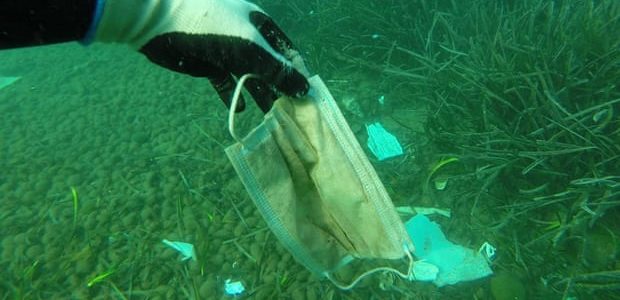by Ming Zee Tee
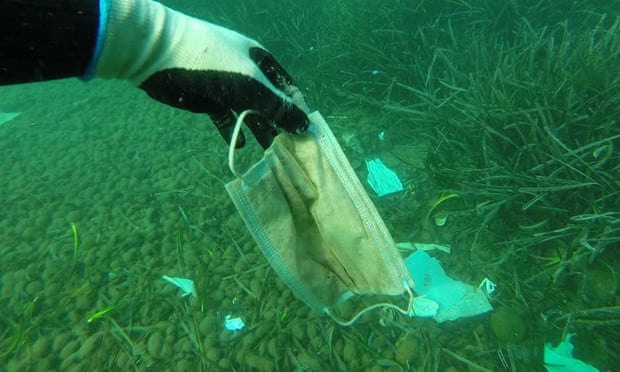
Plastic waste is a highly complex problem. It is also a disproportionately Asian problem, as Asia contributes to over 80% of marine plastic pollution. Asia’s rapid economic growth has driven an explosion of demand for plastic products, and this has not been matched by adequate waste management systems. With the COVID-19 crisis, the issue has only been compounded, with COVID-19 waste, such as masks and sanitiser bottles ending up as waste in the oceans and beaches. In light of this, APC and Raise Partners co-hosted an online dialogue on 10 September, using Vietnam as a case study to explore how we can leverage change in our plastics waste ecosystem.
APC Member Olivier Dung Do Ngoc kicked off with a sobering opening on the situation of plastic waste in Vietnam. Vietnam is the 44th largest economy in the world, but also has the dubious honor of ranking among the top 5 countries contributing to plastic waste leakage into our oceans. Olivier stressed that Vietnam will not reach her developmental goals if this issue persists. The same spirit of innovation and drive that Vietnamese people displayed when responding to COVID needs to be channelled into the plastics problem.
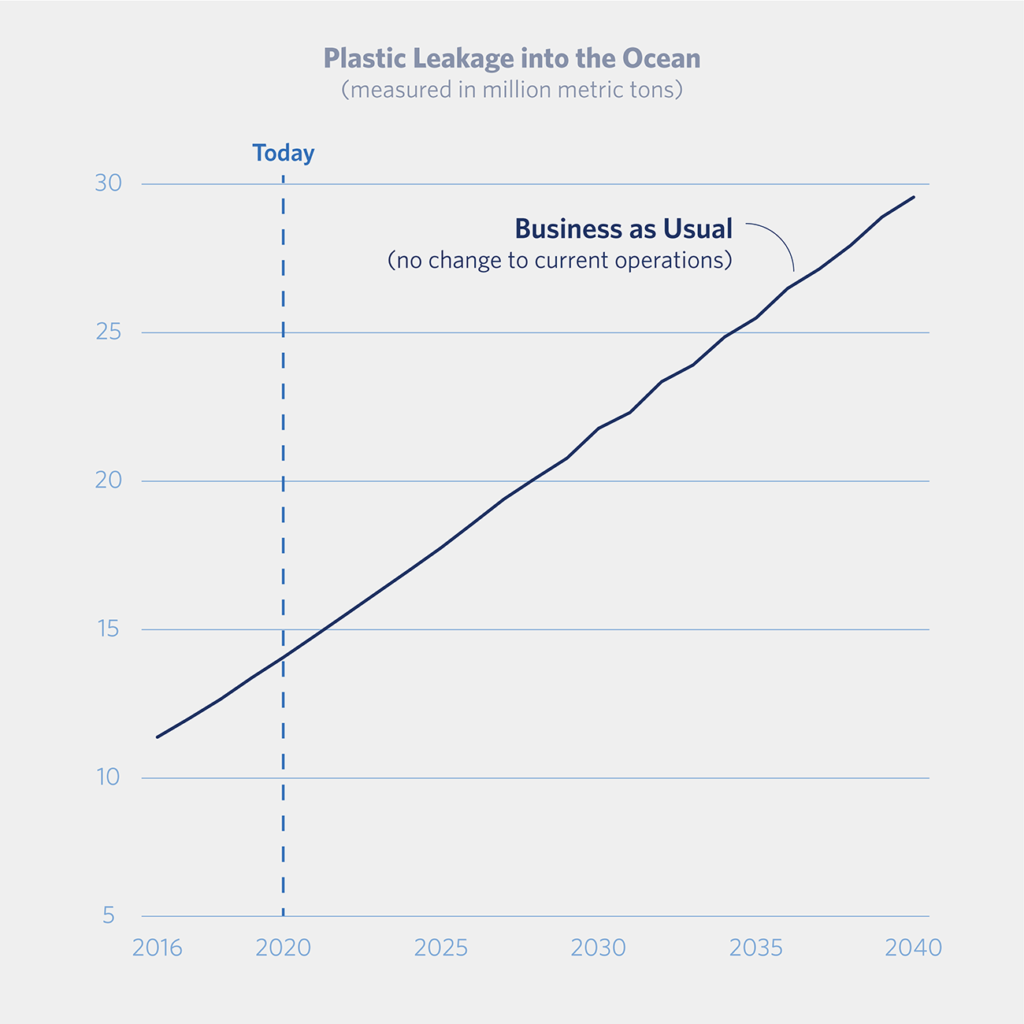
We then heard from Simon Reddy and Sarah Baulch of Pew Charitable Trusts, who discussed their findings from the Pew report Breaking the Plastic Wave. Using data modelling systems from Oxford University, the report assesses the potential pathways of change towards stopping ocean plastic pollution. Sarah shared that business-as-usual indicators would result in a quadrupling of plastic stock in the ocean by 2040, and only a systems-change scenario would reduce these levels of plastic leakage within a similar timeframe. This would include recycling, reducing consumption, and collecting and disposing of ocean plastics. Clarifying a question on the effectiveness of recycling by Olivier, Sarah debunked the common myth that recycling was the ‘magic bullet’ to our plastics crisis due to limits on the types of plastic that can be recycled economically, and the number of times plastic can be recycled. Recycling rates – even in developed countries – hover at a paltry 15%, and recycling should not be viewed as the one-size-fits-all solution.
A systems-change approach requires a multi-pronged approach, with commitment from the commercial sector, the government and the community. On the part of Vietnam’s government, Mimi Vu from Raise Partners shared how the Vietnam Business Council on Sustainable Development plans to execute the goal of reducing plastic waste. In 2019, Prime Minister Nguyen Xuan Phuc pledged to eradicate single-use plastics from all stores, markets and supermarkets in urban areas, and to extend this throughout the country by 2025. The three ministries involved in this effort are the Ministry of Natural Resources and Environment, the Ministry of Industry and Trade, and the Ministry of Finance. Despite the commitment, Mimi stressed that ‘the devil is in the details’, and that we may face further challenges during the implementation phase of these plans.
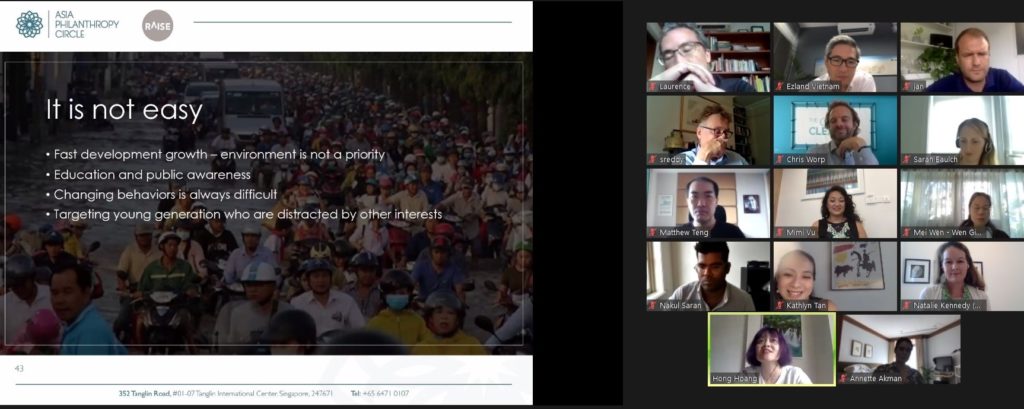
Not only do we need government action, but also advocacy leaders in the sector to influence this systems-change approach. Climate Hero and Obama Scholar Hong Hoang followed up with an uplifting presentation of her work with CHANGE, an NGO focused on engaging grassroots communities in climate action. Hong shared about the iChange Plastics initiative, which uses cool and catchy multimedia campaigns to engage with young Vietnamese consumers and encourage them to reduce their plastics consumption. CHANGE also runs environmental leadership camps for its members, and youth leaders from the programme have initiated their own plastic-free projects in 10 provinces. But the picture isn’t all rosy. Challenges remain in retaining the younger generation’s attention span, the surge in single-use plastic consumption brought about by COVID-19, and the challenges in embedding long-term habits of sustainability. In all, while CHANGE has made headway, their reach is, according to Hong, ‘still minimal’.
Moving on from strategies to technical solutions, APC Members then heard from Chris Worp from The Ocean Cleanup about a different intervention point: rivers. Globally, 1,000 rivers are responsible for 80% of plastic inflow into the ocean. The Ocean Cleanup’s Interceptor hopes to ‘turn off this tap’: it is a roving, catamaran-like cleanup system that floats on rivers and intercepts waste before it reaches the ocean. Pilot systems are operational in the Mekong River (Vietnam), the Cenkareng Drain (Indonesia), Klang River (Malaysia) and Rio Ozamo (the Dominican Republic). In response to APC Member Kathlyn Tan’s concern about the interceptor destroying marine life, Chris assured us that no animals are accidentally collected, because the interceptor adjusts to the natural flow of rivers so that animals can see and avoid it. However, Chris noted regretfully that the waste extracted from their rivers currently goes to incineration – an outcome influenced by the diverse and contaminated nature of river plastics that makes them hard to recycle.
A solution to this problem was then forwarded by Jan Zellman, Founder of Evergreen Labs. The organisation has innovated a waste processing model called ReForm Plastic, which takes in low-value plastic waste and produces high-value products. Echoing Sarah’s earlier observation, Jan reminded us that ‘not all plastic is equal’: only 15% of all plastic waste is high-value and thus economically recyclable; the remaining 85% are of low-to-no value and go largely uncollected. ReForm Plastic hopes to buck this trend. Through a combination of low-cost commodity machines, decentralised operations and process innovations, the business transforms low-value plastic into furniture products in a financially viable manner. Responding to a question by APC Member Laurence Lien, Jan shared details on the scalability and franchising of their model. Each new facility requires between $35,000 to $45,000 of upfront investment with an estimated payback period of 2 years assuming reasonable feedstock costs. Originally in Hoi An (Vietnam), ReForm Plastic has since opened two facilities in Myanmar, and is actively seeking expansion.
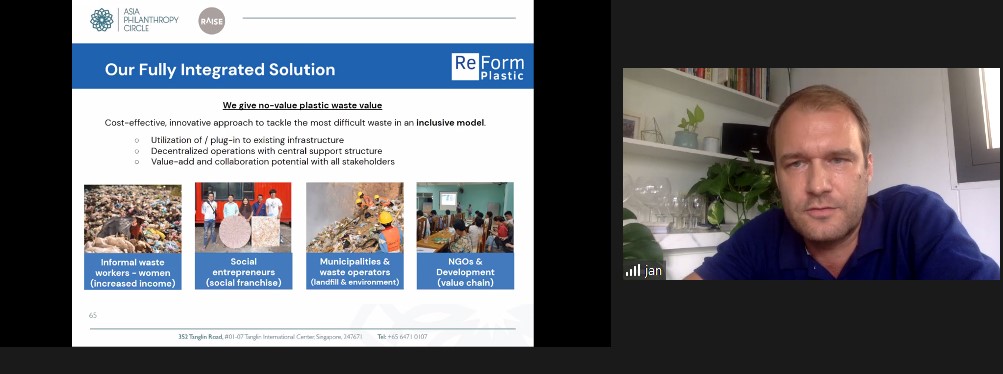
Nakul Saran finished the day with a philanthropic perspective from APC Member Andrew Forrest’s Minderoo Foundation. He leads Sea the Future, the Foundation’s ambitious USD $300 million plastics initiative that seeks to catalyse a sea change in the production, consumption and disposal of virgin and recycled plastics. The initiative is strategised around a systems-change approach: its five official programmes target corporate leadership, transparency of global plastic flows, innovation and technology, policymakers, and recovery of plastics from the environment. The problem we face is an urgent one, and one with many unanswered questions: How can we eliminate the cost disadvantage of recycling? How can we get capital markets to understand the opportunities of recycled plastics, and the risks of staying in virgin plastics? How can we engage with governments? How can we create radical transparency in the plastics value chain?
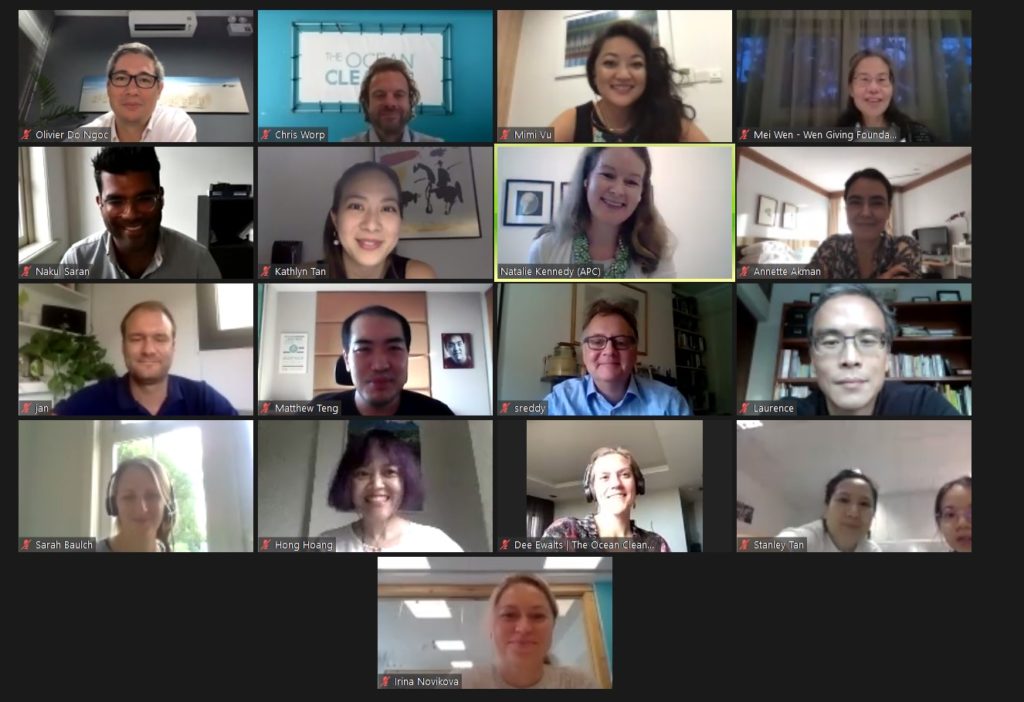
To answer these questions, we must engage with a diverse ecosystem of actors in the plastic waste management space: from governmental bodies like the Vietnam Business Council, to solutions engineers like Jan Zellman and Chris Worp, to community changemakers like Hong Hoang. Philanthropists and their foundations should be aware of the complexity of this arena. Moreover, philanthropists themselves operate within systems, often serving as leaders of their own companies and fields. We leave APC members with the challenge: As philanthropists, how can you use your positions of leadership to find leverage within systems, in order to drive catalytic change? This is a challenge that APC hopes its members will continue to grapple with.

